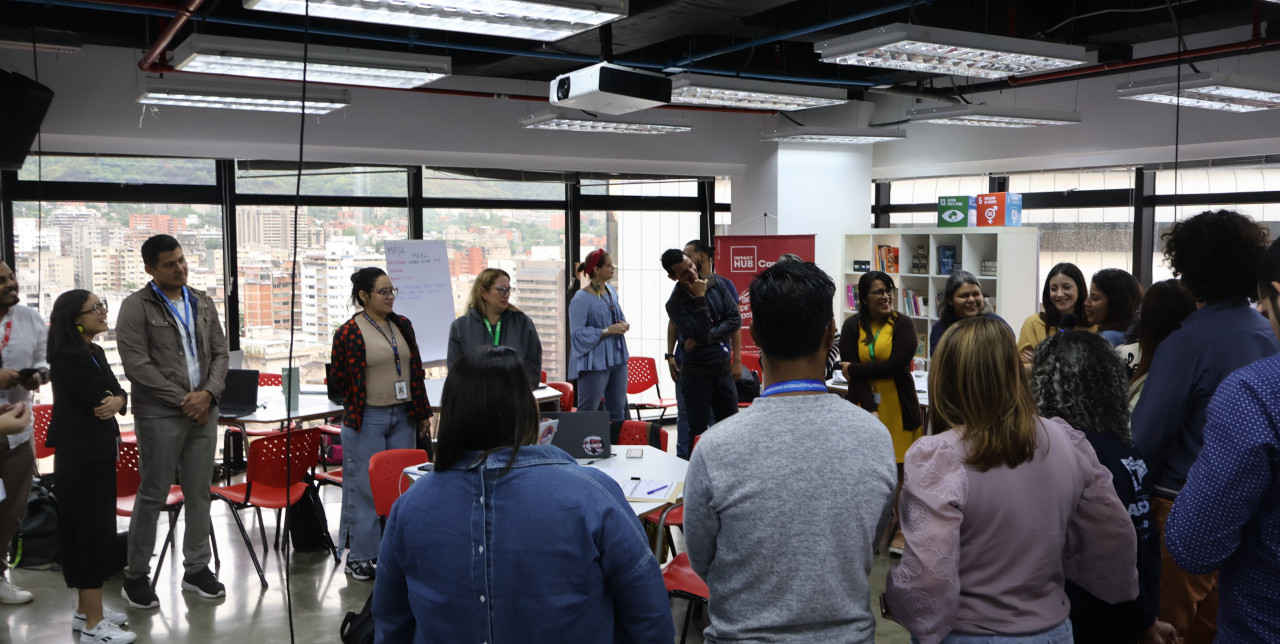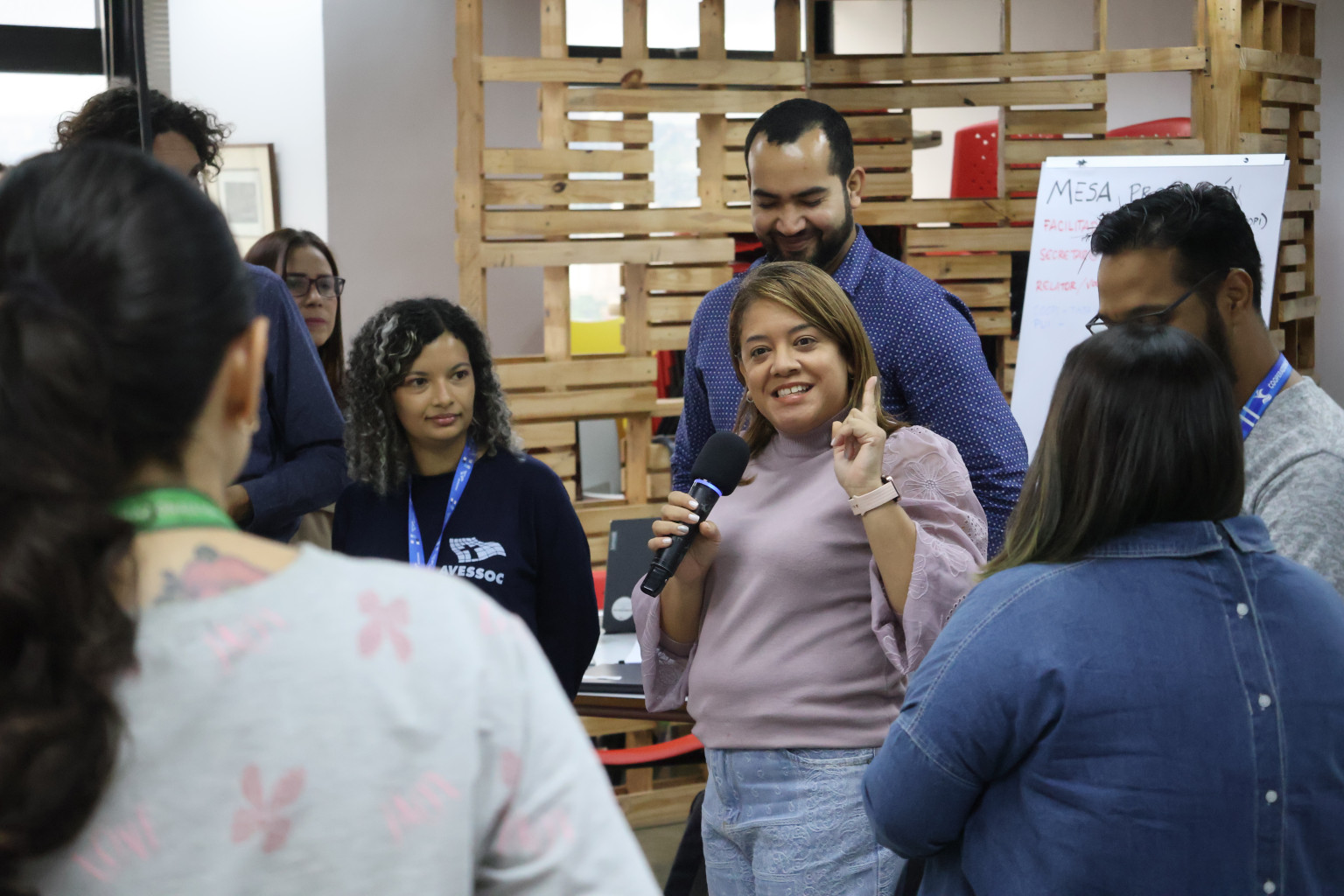04-07-2024 | di COOPI
Venezuela. Best practices, lessons learned and challenges for the Consortium for Humanitarian Assistance
On May 31, 2024, the Consortium for Humanitarian Assistance in Venezuela (CONAHVE), led by COOPI - Cooperazione Internazionale, held a key event with all its partners, which marked the closing of a two-year cycle of the project "Multisectoral humanitarian assistance to respond to the urgent needs of the most vulnerable population in Venezuela", co-financed by the European Union Humanitarian Aid (ECHO). The project was designed to address the urgent needs of the vulnerable population in Venezuela, providing protection (including help for victims of violence and trafficking), health, water, sanitation and hygiene, and food security services through a multisectoral, comprehensive and coordinated response in seven states: Distrito Capital, Miranda, Zulia, Falcón, Sucre, Delta Amacuro and Bolívar. The objective of the event was to identify good practices, lessons learned and challenges encountered during the implementation of the project.
The activity was structured in working groups discussing key topics like coordination, protection, water, sanitation and hygiene, monitoring, evaluation, accountability and learning. Participants discussed achievements, effective strategies and challenges faced, generating valuable recommendations for future interventions.
Key takeaways
- Coordination: teamwork played a crucial role as working closely together helped organizations implement their activities effectively;
- Participatory Approach: involving the community in planning and execution strengthened ownership and sustainability of results.
- Training and Capacity Building: training community leaders and local partners significantly improved their ability to respond to emergencies;
Lessons learned
- Flexibility and adaptation: the ability to adapt quickly to changing conditions was crucial to the success of the project.
- Importance of Communication: maintaining open and transparent communication among all consortium partners facilitated problem solving and informed decision-making.
- Continuous Monitoring and Evaluation: implementing a robust monitoring and evaluation system allowed for timely adjustment of strategies and maximized the impact of interventions.
Looking ahead
The event concluded with a renewed commitment from all organizations in the consortium to continue working together to address ongoing challenges. They emphasized the importance of applying best practices and lessons learned to future projects, particularly to the new CONAHVE project, which will start soon, to improve preparedness and resilience. COOPI and its partners in CONAHVE are committed to ongoing improvement and learning, ensuring that their efforts not only meet immediate needs but also contribute to the long-term development and resilience of communities in Venezuela.
As of 2019, COOPI remains dedicated to improving living conditions in Venezuela by promoting and strengthening the resilience of local communities, combining humanitarian response, rehabilitation and development, and implementing targeted interventions in the areas of gender-based violence and human trafficking, health, water, sanitation and hygiene, and livelihoods




 Venezuela
Venezuela
